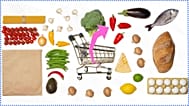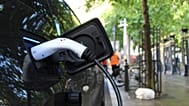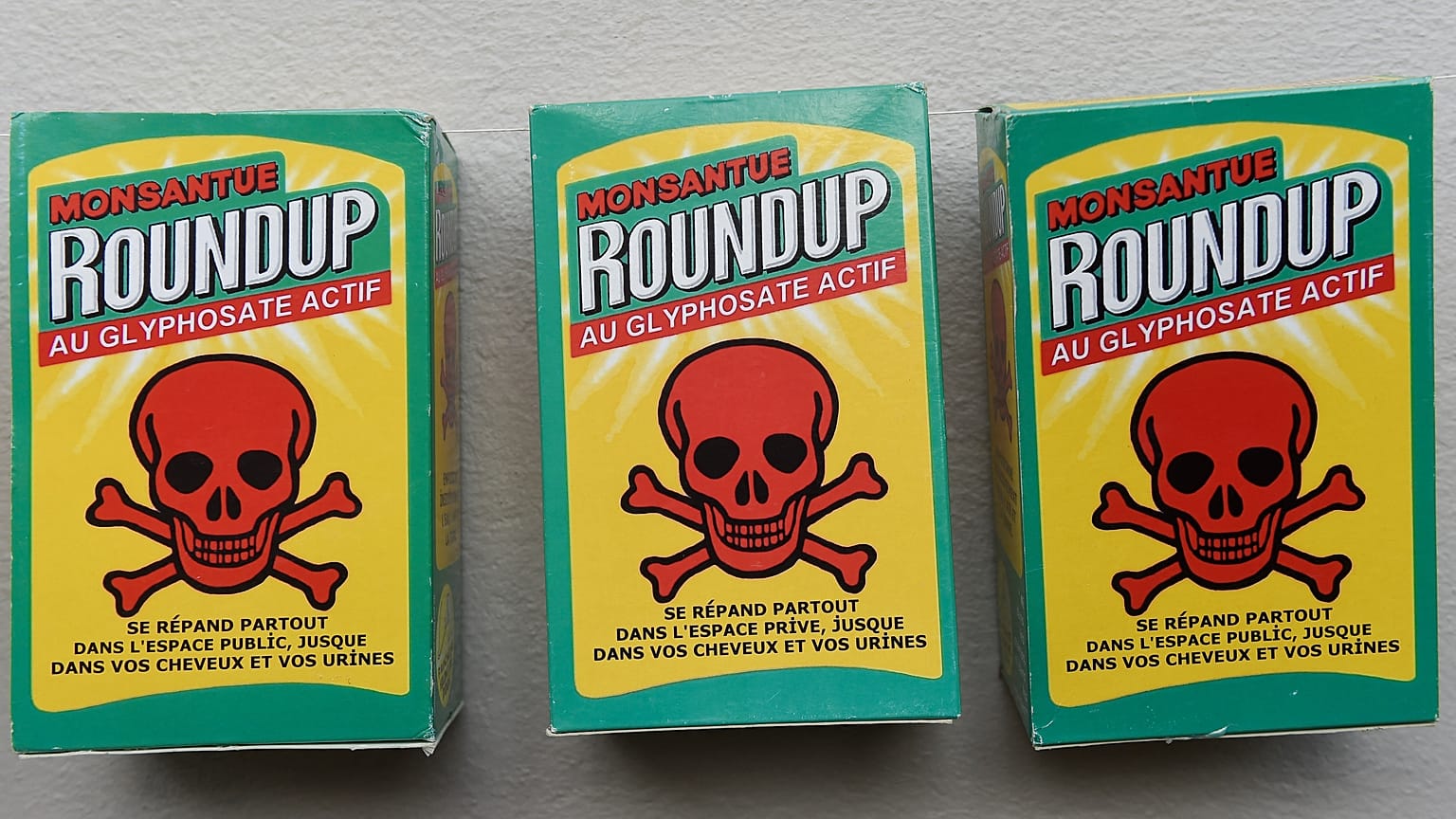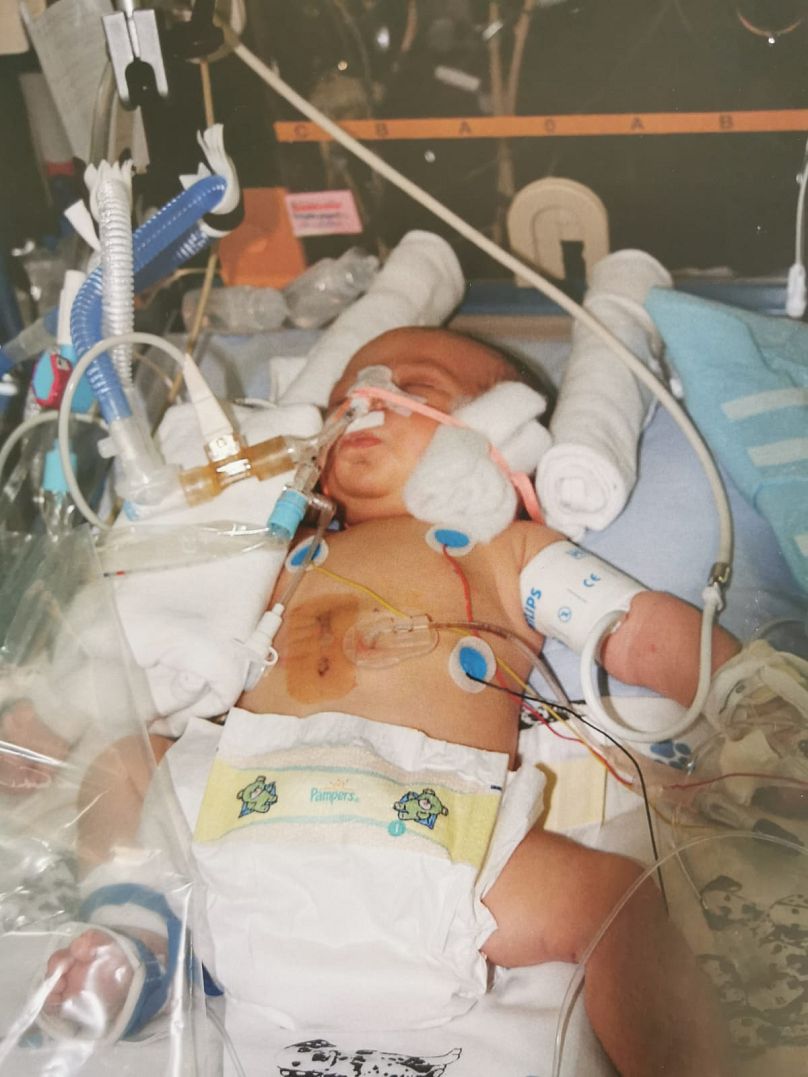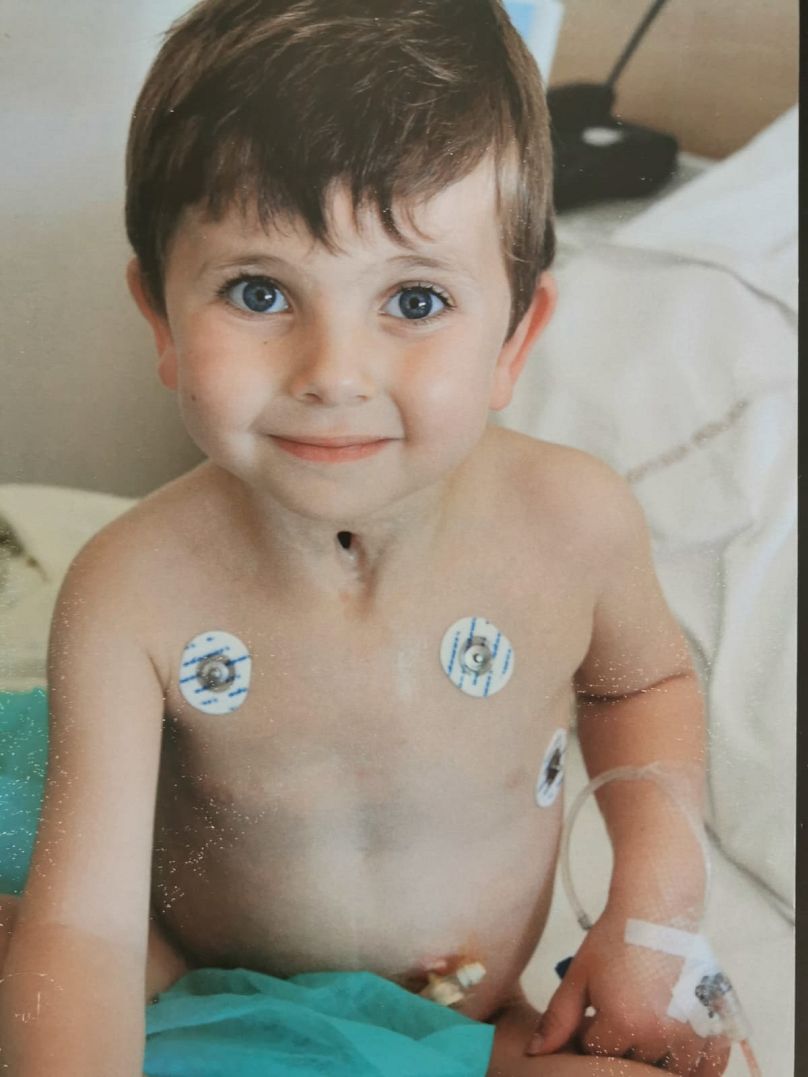The European Commission is preparing to renew the authorisation of glyphosate for a further ten years, with a vote scheduled for 13 October in Brussels.
The European Union authorised the use of the herbicide glyphosate in 2017 for an initial five years, for a further year in December 2022.
 ADVERTISEMENT
ADVERTISEMENT
 ADVERTISEMENT
ADVERTISEMENT
Brussels' decision to give this chemical the green light was based on conclusions from a European Food Safety Authority (EFSA) report, published in July, which found that glyphosate did not present a "critical area of concern". But, this resolution has given rise to debate and concern within EU Member States.
Théo, a victim of weedkiller
In 2006, Sabine was still unaware that she was pregnant while using glyphosate at work. However, this powerful herbicide was about to mark her life forever.
"Every year, as part of my job as a horse ride organiser, I had to use a glyphosate-based weed killer on our riding arena. It's a sandy area of about 700 square metres. And it took me several days to do it every time," Sabine Grataloup told Euronews. "And that's when Théo was in my belly, it was the beginning of my pregnancy and that's exactly when Théo's larynx, trachea and oesophagus were malformed."
In 2018 Sabine sued Monsanto, the US agrochemical giant that sold the pesticide. The link between glyphosate and Theo's malformations was recognised by a compensation commission for prenatal children exposed to pesticides.
This is the first time in France the herbicide has been officially recognised as a possible source of birth defects.
"It's an amount that has the merit of existing, which is around €1,000 per month, paid from around March- April 2023 until March 2025, so for three years. And in March 2025, the Commission will re-examine Théo's case to see whether the compensation should be extended or whether it is considered that his condition is no longer evolving," Sabine explained.
A clear victory but one that does not erase years of suffering.
"Théo has malformations in his oesophagus, trachea and larynx. It's a polymalformative syndrome, so he has a series of malformations that required a lot of operations. He had a total of 54 operations," said his mother.
Even today, because of a ruptured oesophagus, Théo, now aged 16, can only breathe with a tracheotomy, which is a hole made in his windpipe. Up to the age of six, he was fed through a tube.
Ahead of Friday's vote, Sabine Grataloup is appealing to MEPs: "What I would like to say to them is to take their noses out of the figures, to take their noses out of the economic balance sheets and statistics, to tell themselves that behind the statistics there are real victims. If they take the decision to keep glyphosate on the European market, they are taking the decision that there will be these victims, they are responsible for this suffering and these future victims."
What is glyphosate?
Glyphosate is a herbicide widely used around the world to eliminate weeds that invade agricultural crops and public spaces. It was introduced to the market in the 1970s by Monsanto under the trade name Roundup, although many other manufacturers also produce glyphosate-based formulations.
Its popularity is based on its undeniable effectiveness in controlling weeds, its ease of use and its relatively affordable cost. Its mode of action is to inhibit an enzyme that is crucial to plant growth, leading to elimination.
However, glyphosate is at the heart of controversy and debate due to growing concerns about its possible impact on human health and the environment. According to Gergely Simon, Senior Chemicals Officer at Pesticide Action Network (PAN Europe), an NGO dedicated to sustainable agricultural practices and the reduction of pesticide use in Europe, "Glyphosate is the most widely used pesticide in Europe and worldwide, and is essentially a herbicide. It's used for a variety of applications such as pre-harvest use and desiccation, but it's even used in national parks to combat invasive species, and we even know that quite a large quantity is used, for example, along railway lines for maintenance. But there are many other uses I could mention."
According to the experts, this substance could easily be replaced. But Glyphosate EU, an organisation that brings together companies in favour of the pesticide, disagrees: "Many of the alternative approaches suggested for weed management require the reintroduction of mechanised farming practices. Apart from the negative impact this would have on the environment, the structural conditions of many crops do not allow the use of mechanical methods. For example, it is not possible to use machinery without destroying the crops," the group told Euronews.
"In addition, no individual herbicide or combination of herbicides currently registered in Europe could offer the same benefits in terms of reduced tillage and the possibility of adopting cover crops, which are essential elements of conservation agriculture."
The risks
Environmental groups have called EFSA's assessment "shocking".
"In our view, EFSA has downplayed the existing evidence from animal and epidemiological studies on the effects of glyphosate, which can cause DNA damage in certain organisms," says Gergely Simon. "This indicates that glyphosate can cause cancer. We therefore believe that, in line with international guidelines from the US EPA, glyphosate should be classified as carcinogenic, which has already been done by the International Agency for Research on Cancer (IARC) and also by France's National Institute of Health and Medical Research (Inserm). They have all concluded that, based on the available evidence, there is a probable link between exposure to glyphosate and the development of cancer".
EFSA, for its part, responded that "data gaps are mentioned" in their report, "either as questions that could not be completely answered or as open questions."
The three questions that could not be finalised relate to the assessment of one of the impurities present in glyphosate, the dietary risk assessment for consumers and the risk assessment for aquatic plants. "Overall, the information available does not allow definitive conclusions to be drawn regarding this aspect of the risk assessment," EFSA told Euronews.
Gergely Simon stresses that the risks should not be underestimated under any circumstances. "Numerous studies show that exposure to glyphosate can be linked to both autism in children and Parkinson's disease. We therefore believe that the fact that EFSA has stated that there is no standardised protocol for drawing conclusions on the neurotoxicity of glyphosate should be a critical area of concern, which would mean that glyphosate could not be authorised as it currently is," he emphasises
"In addition, there is a large body of alarming evidence about the destructive effects of glyphosate on the microbiome, as glyphosate is both a herbicide and an antibiotic. It is primarily used, for example, to alter the soil microbiome, but also the human gut microbiome. We know that there are many health risks associated with the destruction of the microbiome. Finally, EFSA has confirmed that glyphosate has the potential to cause endocrine disruption at doses considered safe in the European Union", adds the PAN Europe representative.
"There are no internationally recognised guidelines for assessing the risks associated with the microbiome in the field of pesticides. Further research is needed".
Glyphosate EU, the group of companies in favour of renewing the authorisation of glyphosate in Europe, says: "All allegations have been raised on several occasions and have been dealt with by the regulatory authorities, in Europe and throughout the world. This is yet another attempt by non-governmental organisations to discredit the most comprehensive scientific dossier presented in the application for renewal of EU approval for glyphosate, and to undermine confidence in the regulatory authorities in order to prevent the renewal of approval for glyphosate in the EU".
Opposing countries
Germany has argued in favour of abandoning glyphosate in the European Union. In September 2023, at the end of a meeting between representatives of the 27 member states to discuss the European Commission's proposal, the German agriculture minister warned of the threats to biodiversity and stressed the need for a coordinated phase-out of glyphosate at European level, while warning of uneven levels of protection within the EU.
In 2021, the German government announced its decision to withdraw glyphosate from the market by the end of 2023. The country is therefore expected to vote against renewing the authorisation of this herbicide within the EU at the vote scheduled for 13 October.
France, for its part, had also tried to adopt restrictive measures with regard to glyphosate. In 2017, French President Emmanuel Macron announced his commitment to completely ban glyphosate in France before 2021.
In early 2019, Macron buried his promise during the Grand Débat. "Can we say that there will be no more glyphosate in five years? It's impossible. I'm not going to lie to you, it's not true. If I told you that, I'd be completely killing certain sectors", he said.
PAN Europe carried out a poll in which two-thirds of those questioned said they wanted a total ban on pesticides such as glyphosate. "We believe that the Commission's proposal not only breaches EU law, but also ignores the legitimate concerns of European citizens. Only 14% of citizens expressed support for the use of glyphosate. Around two-thirds of those questioned said they wanted a total ban," concludes Gergely Simon.



